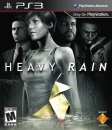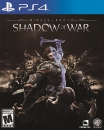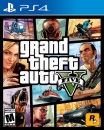It is commonly argued what the relationship between a game's sales and critical reception is. So in order to hopefully gain some insight on the matter, I compiled a list of Xbox 360 games that sold 200 thousand or more copies and look up all their Metacritic scores. I ended up with a list of 695 games that had both 200k sales and enough reviews for a Metascore.
The following is a chart showing the average sales of games per Metascore. The red line is a moving average of the previous five data points.
There is a lot to work with here, so let's start with a few obvious points.
Sales for games remain low across the 40's to the 60's, barring a few peaks, before the average finally starts to increase in the 70's. However, even then, growth in sales only becomes significant when scores reach the 80's and especially the 90's.
On the low end, the lowest rated game was Hannah Montana: The Movie with a Metascore of 25 and about 210k sales. However, as there are only 11 games with a Metascore below 40, quite a few points have to be skipped in the 20's and 30's. Every Metascore from 38 through 98 is occupied by at least one game each.
The highest reviewed games (45 games with 90+ Metascores) tend to be among the best sellers on the Xbox 360. These are the games like Grand Theft Auto, The Elder Scrolls, and Halo. Naturally, this includes games with upwards of 5 or even 10 million sales. That said, certain acclaimed games did not sell nearly as well as their brethren. A fifth of these 90+ games never even reach a million sales (Bayonetta, Dark Souls II, Rock Band 3, XCOM, etc).
Notable Metascores
- 25 - The lowest available point on our chart
- 42 - The first real peak. Includes three games, one of which was the bestseller Zumba Fitness with 2.39 million sales.
- 46 - Another early peak. Includes Tony Hawk Ride and Sonic 06. Two big brands average out too over a million sales each.
- 55 - This is the first Score that includes over 10 games, something that becomes the default from scores of 65 to 90. The best-selling game at 55 is Kinect Star Wars with 1.76 million sales.
- 61 - Includes 12 games, and is the first score to have an average of over 2 million. This is where the bizarre outlier of Kinect Adventures lies, outselling its 11 brethren combined by about 5 to 1.
- 67 - Contains several games with quite a few different sales figures. You have Nier (0.29M), Two Worlds II (0.54M), Sniper Elite V2 (0.84M), Resident Evil 6 (1.97M), and Sega Superstars Tennis (2.89M).
- 79 - This is the score representing the most games, with 33 total. 11 of these games sold over a million copies, though only one game sold over 2 million (Battlefield 4 at 3.54 million).
- 80 - From this point forward, the average game sells a million or more copies for all scores.
- 85/86 - These two scores form a notable dip in what is otherwise an upward trend. This was more due to the big-sellers rated just above and below these scores. 83 and 84 scoring games include Halo 3: ODST (6.35M) and Black Ops II (13.86M), while games at 87 and 88 include Halo 4 (9.96M), Black Ops (14.74M), and Modern Warfare 3 (14.82M).
- 98 - The highest rated game, Grand Theft Auto IV (11.09M).
Highlighting Series
A few series have enough entries present to give an examination. So let's do that.
- Assassin's Creed sales remained roughly constant across numbered entries (5.3M to 5.55M) until the fourth game, despite fluctuating scores. Furthermore, that fourth game was hindered by next-gen versions of the game, suggesting that the pattern may have continued.
- Call of Duty has no immediate relationship between sales and scores. Black Ops and Modern Warfare 3, the best-selling entries, only got scores of 87 and 88. In contrast, Modern Warfare and Modern Warfare 2 got 94's each. Ghosts outsold Modern Warfare, even though it only got a 73 and competed with next-gen platforms in 2013. And of course, Call of Duty 2, the worst selling entry, scored an impressive 89.
- Fable II sold 3.5 million with a score of 89. Fable III sold 5.1 million with a score of 80.
- Forza is nearly a perfect microcosm of sales vs. scores. Forza 2 had both the worst sales and score of the numbered entries on 360, Forza 3 had the best of each, and Forza 4 was in the middle.
- Halo makes sense given the context of each game. Halo 3 had the best sales and reviews. Halo 4 sold around the same amount as Reach despite scoring worse, but had the benefit of being a numbered sequel. ODST and Anniversary scored and sold the worst, but still were hits in their own right.
- NBA 2K makes general sense. When scores were in the low to mid 80's, it sold around a million copies. The average score shot up five or so points starting in with NBA 2K11, and sales more than doubled.
- Pro Evolution Soccer actually got better fromthe 2010 edition to the 2014 edition, even as sales fell by two thirds.
- Skate got somewhat worse reviews as its sales increased. Skate had 710k sales and a 86, Skate 3 had 2.71M sales and an 80.
- Sonic 06 outsold Sonic Generations. Despite that massive score difference of 33.
- Tiger Woods PGA Tour sales peaked at the same time as series scores peaked, but bare in mind that this is when Tiger Woods became a controversial figure.
- Music and Rhythm series generally declined in sales over time even when scores remained high. This applies to Dance Central, Guitar Hero 3-5, Just Dance, and Rock Band.
- Conversely, the sales of series like FIFA increased over across sequels, regardless of scores. You crazy Europeans!
For a bonus, here is a graph showing all of the games as points.
I didn't put it on top for a reason.
Conclusions
- The Metascore of games has a positive relationship with their sales. However, this relationship is disproportionately allocated towards the differences between the highest scores. The difference between games with Metascores of 40 and 60 is much less than those that are at 70 and 90.
- Despite the positive relationship, there are still plenty of outliers. Two of the Top 10 best-selling Xbox 360 games got scores of below 80 (Kinect Adventures and Call of Duty: Ghosts). Games with scores below 50 sold over a million units (Zumba Fitness, Sniper: Ghost Warrior, Sonic 06, etc). Games that got scores of over 90 didn't necessarily break a million sales (see above).
- Many individual series will be subject to their own trends and oddities, caused by anything from building up/down reputation, celebrity influences, industry trends, etc.
Notes
- I will update this to include games with under 200k sales if there is enough interest
- Sales were rounded to the nearest 10,000. This may mean some values should be slightly different.
Love and tolerate.





























































